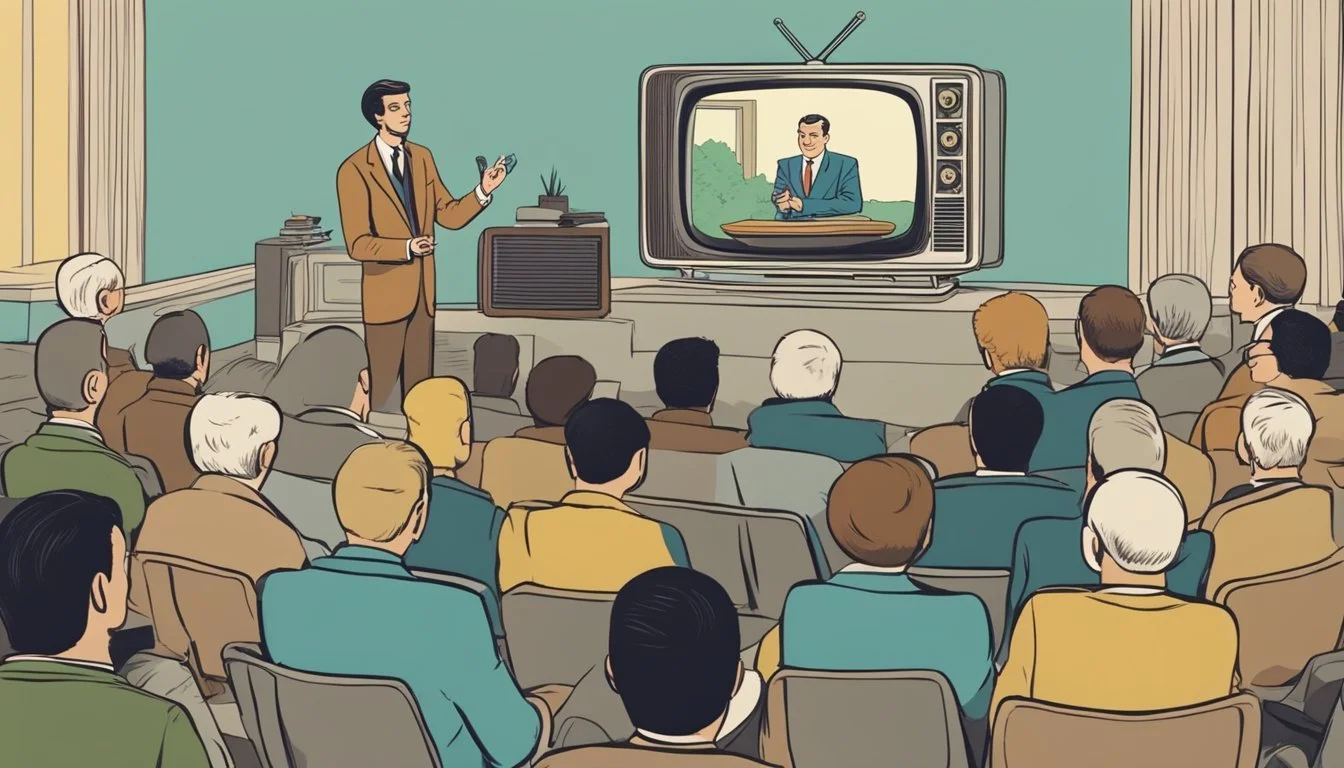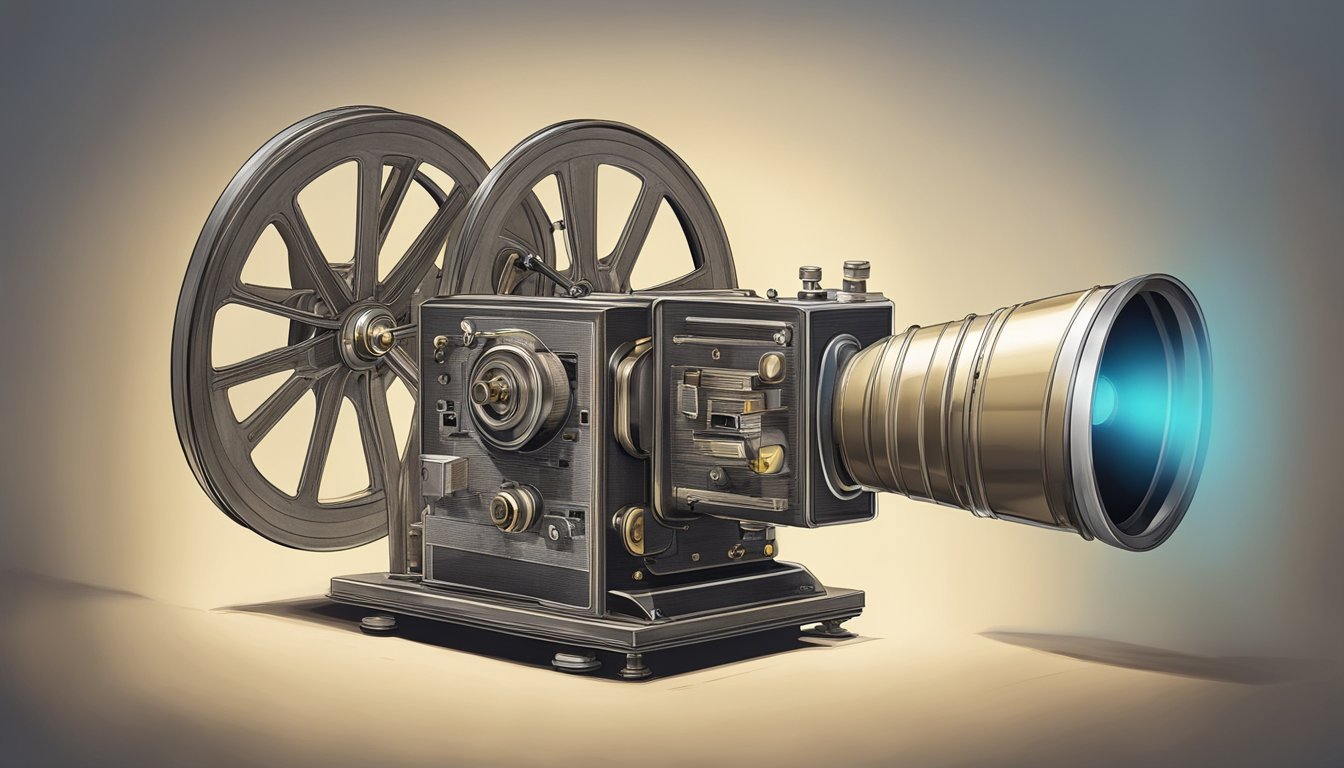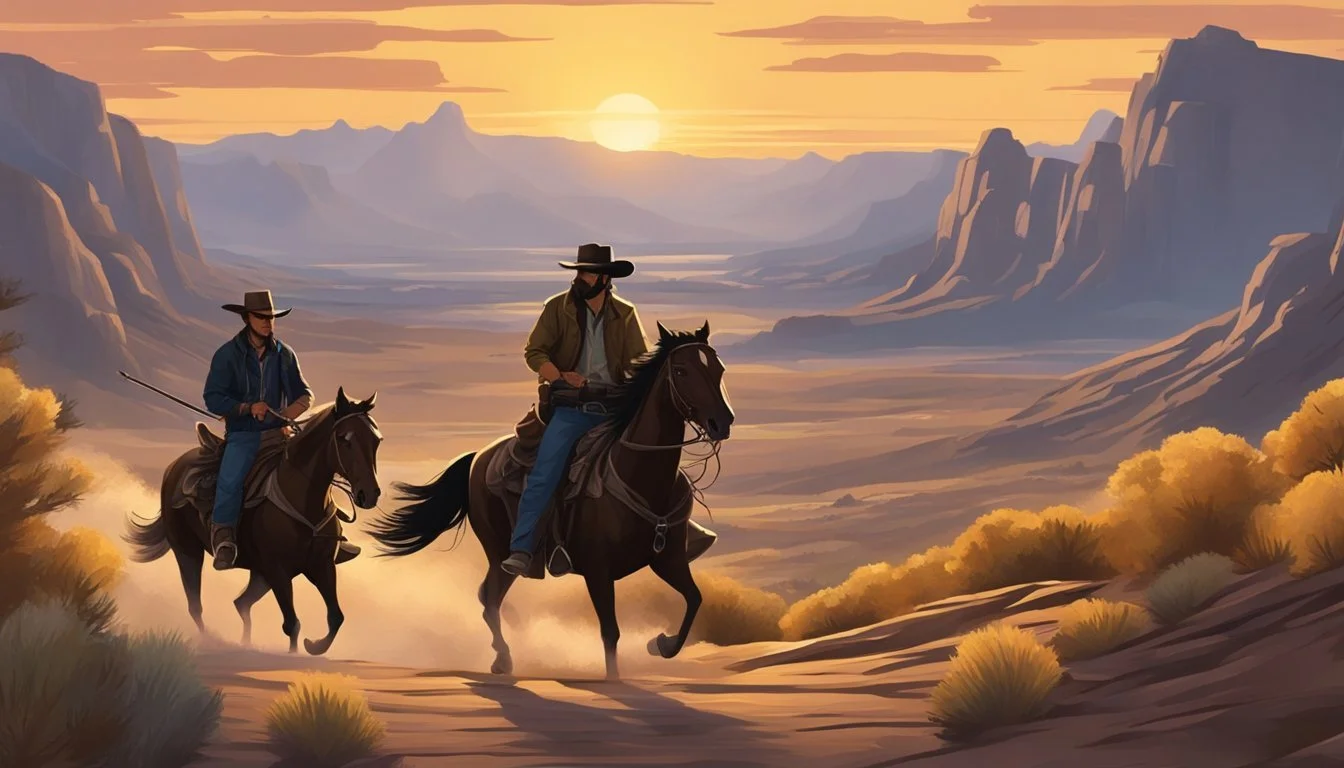Top Documentaries of 1969
Groundbreaking Films That Defined an Era
1969 was a landmark year in film, marked by groundbreaking cinema across various genres. Documentaries played a crucial role in capturing the spirit of this transformative era, providing viewers with intimate glimpses into pivotal moments and cultural shifts.
The top documentaries of 1969 offer a unique window into the social, political, and artistic landscape of the time. These films not only chronicled historical events but also pushed the boundaries of the documentary format, influencing generations of filmmakers to come. From music festivals to political movements, the documentaries of 1969 continue to resonate with audiences today, providing valuable insights into a pivotal year in history.
1) Woodstock (1970)
Woodstock is a landmark documentary that captured the essence of the iconic 1969 music festival. Directed by Michael Wadleigh, the film offers an immersive experience of the three-day event that defined a generation.
The documentary showcases memorable performances by legendary artists like Jimi Hendrix, The Who, and Crosby, Stills, Nash & Young. It also highlights the massive crowd of over 400,000 people who attended the festival.
Woodstock goes beyond just music, depicting the communal atmosphere and counterculture spirit of the late 1960s. The film captures candid moments of festival-goers, revealing their experiences and interactions.
The documentary's innovative editing techniques, including the use of split-screen effects, set a new standard for concert films. It won the Academy Award for Best Documentary Feature in 1971.
Woodstock remains a significant cultural artifact, preserving a pivotal moment in music history and social change. It continues to inspire and inform new generations about the spirit of the 1960s.
More information on Woodstock (1970)
2) Salesman (1969)
Salesman is a groundbreaking documentary directed by Albert and David Maysles, along with Charlotte Zwerin. The film follows four door-to-door Bible salesmen as they travel across America trying to sell expensive editions of the Good Book.
The documentary provides an intimate look at the lives of these salesmen, capturing their struggles and disappointments. It offers a raw portrayal of the American dream and its disillusionment in the late 1960s.
Salesman employs the Direct Cinema style, characterized by its observational approach and lack of narration. This technique allows viewers to feel immersed in the salesmen's world, experiencing their ups and downs firsthand.
The film received critical acclaim upon its release, with many praising its honest depiction of working-class America. It has since become a cornerstone of documentary filmmaking, influencing generations of filmmakers.
Salesman not only documents the lives of its subjects but also serves as a commentary on capitalism, religion, and the human condition in mid-20th century America.
3) If.... (1969)
"If...." is a provocative British drama directed by Lindsay Anderson. The film offers a scathing critique of the British public school system and societal hierarchies.
Malcolm McDowell stars as Mick Travis, a rebellious student at an elite boarding school. The story follows Mick and his friends as they clash with the oppressive authority figures and outdated traditions.
Anderson employs a blend of realistic and surreal elements to create a dreamlike atmosphere. The film's narrative structure becomes increasingly fragmented as it progresses, mirroring the characters' mental states.
"If...." sparked controversy upon release for its depiction of violence and anti-establishment themes. It won the Palme d'Or at the 1969 Cannes Film Festival, cementing its place in cinema history.
The film's exploration of youth rebellion and institutional corruption resonated with audiences during the turbulent late 1960s. Its influence can be seen in subsequent coming-of-age films and social critiques.
More information on "If...." (1969)
4) Medium Cool
Medium Cool (1969) blended fiction and reality in a groundbreaking way. Directed by Haskell Wexler, the film follows a television news cameraman in Chicago during the tumultuous summer of 1968.
Robert Forster stars as John Cassellis, a detached journalist who becomes increasingly involved in the events he's covering. The film incorporates actual footage from the 1968 Democratic National Convention protests.
Wexler's background as a cinematographer shines through in the film's visual style. He employs cinéma vérité techniques, giving Medium Cool a raw, documentary-like feel.
The film explores themes of media ethics and the role of journalism in society. It raises questions about the responsibility of those who document history as it unfolds.
Medium Cool's innovative approach to filmmaking and its timely subject matter have cemented its place in cinema history. It remains a powerful reflection on a pivotal moment in American culture.
More information on Medium Cool
5) True Grit
True Grit, released in 1969, is a classic Western film directed by Henry Hathaway. The movie stars John Wayne as U.S. Marshal Rooster Cogburn, alongside Glen Campbell and Kim Darby.
Based on Charles Portis' 1968 novel, True Grit tells the story of a determined teenage girl seeking revenge for her father's murder. She enlists the help of the gruff, one-eyed Marshal Cogburn to track down the killer.
John Wayne's portrayal of Rooster Cogburn earned him an Academy Award for Best Actor, the only Oscar of his long career. The film's success led to a sequel, Rooster Cogburn, in 1975.
True Grit showcases stunning cinematography of the American West and features memorable performances from its cast. The movie's blend of action, drama, and touches of humor contributed to its popularity.
The film's enduring legacy is evident in its influence on the Western genre and its 2010 remake by the Coen Brothers. True Grit remains a beloved classic, appreciated for its storytelling and iconic characters.
More information on True Grit (1969)
6) High School (1968)
Frederick Wiseman's groundbreaking documentary "High School" offers a raw, unfiltered look at American education in the late 1960s. The film captures daily life at Northeast High School in Philadelphia, showcasing interactions between students, teachers, and administrators.
Wiseman's observational style allows viewers to witness the complexities of the education system firsthand. The documentary explores themes of authority, conformity, and the challenges faced by both educators and students.
"High School" provides a snapshot of a pivotal time in American society, reflecting the cultural shifts and tensions of the era. The film's unflinching portrayal of school life sparked discussions about educational practices and student rights.
Wiseman's work remains influential in the documentary field, praised for its objective approach and ability to reveal deeper truths about institutions. "High School" continues to be studied and analyzed for its insights into American education and society.
More information on High School (1968)
7) Butch Cassidy and the Sundance Kid (1969)
"Butch Cassidy and the Sundance Kid" is a classic Western film that captivated audiences in 1969. Directed by George Roy Hill, the movie stars Paul Newman as Butch Cassidy and Robert Redford as the Sundance Kid.
The film follows the exploits of these two charismatic outlaws as they lead a gang of train robbers in the late 1890s. When a botched heist puts them on the run from a relentless posse, they flee to Bolivia in search of a fresh start.
William Goldman's screenplay blends historical facts with fictional elements, creating a compelling narrative. The chemistry between Newman and Redford shines throughout, making their characters both likable and memorable.
The movie's success contributed significantly to the popularity of the "buddy film" genre. Its mix of action, humor, and drama resonated with audiences and critics alike.
"Butch Cassidy and the Sundance Kid" won four Academy Awards, including Best Original Screenplay and Best Cinematography. Its impact on popular culture has endured for decades, cementing its place in film history.
8) Easy Rider
"Easy Rider" (1969) is a groundbreaking American road drama film directed by Dennis Hopper. The movie stars Peter Fonda and Hopper as two bikers traveling through the American Southwest and South.
The film follows Wyatt and Billy, who embark on a journey after completing a lucrative drug deal. Their travels expose them to various aspects of American culture and counterculture in the late 1960s.
Jack Nicholson delivers a memorable performance as George Hanson, an alcoholic lawyer who joins the protagonists on their adventure. His portrayal earned him an Academy Award nomination for Best Supporting Actor.
"Easy Rider" is known for its iconic soundtrack featuring songs by The Band, Steppenwolf, and Jimi Hendrix. The music perfectly captures the spirit of the era and enhances the film's themes.
The movie explores themes of freedom, conformity, and the changing landscape of American society. It became a landmark of the New Hollywood era and influenced many subsequent films.
"Easy Rider" was a commercial success, grossing over $60 million worldwide on a modest budget of $400,000. It received critical acclaim and remains a cultural touchstone of 1960s cinema.
More information on Easy Rider
9) The Wild Bunch (1969)
"The Wild Bunch" is a groundbreaking Western film directed by Sam Peckinpah. It stars William Holden, Ernest Borgnine, and Robert Ryan in a tale of aging outlaws on the Mexico-United States border in 1913.
The film follows an outlaw gang attempting one last score before the encroachment of modern civilization renders their way of life obsolete. Their plan involves selling stolen Army rifles to a Mexican general during the country's revolution.
Peckinpah's film is renowned for its innovative editing techniques and graphic depiction of violence. It pushed boundaries in American cinema, building on the precedent set by "Bonnie and Clyde" two years earlier.
"The Wild Bunch" is notable for its exploration of themes such as loyalty, betrayal, and the changing nature of the American West. It presents a gritty, realistic portrayal of outlaws, contrasting sharply with romanticized depictions in earlier Westerns.
The film's influence extends beyond the Western genre, impacting action cinema and storytelling techniques in subsequent decades. It remains a significant work in American film history, celebrated for its bold style and unflinching narrative.
More information on The Wild Bunch
10) The Italian Job (1969)
"The Italian Job" is a British heist film directed by Peter Collinson. It stars Michael Caine as Charlie Croker, a charismatic thief who orchestrates an audacious gold bullion robbery in Turin, Italy.
The film is renowned for its car chase sequences featuring Mini Coopers. These scenes showcase the vehicles navigating through Turin's streets and buildings, creating a thrilling visual spectacle.
Noël Coward plays Mr. Bridger, the mastermind behind the heist who oversees operations from prison. His performance adds a touch of sophistication to the otherwise roguish cast of characters.
"The Italian Job" blends comedy and action, with witty dialogue and memorable one-liners. The film's soundtrack, composed by Quincy Jones, complements the on-screen action and has become iconic in its own right.
The movie's ending is particularly famous, quite literally leaving the audience on a cliffhanger. This unconventional conclusion has sparked debate and discussion among film enthusiasts for decades.
"The Italian Job" has gained cult status over the years, influencing popular culture and inspiring a 2003 remake. Its enduring popularity is a testament to its unique blend of humor, action, and style.
More information on The Italian Job
Cultural Impact of 1969 Documentaries
The documentaries of 1969 captured a pivotal moment in history, reflecting societal changes and influencing future filmmaking. They provided intimate glimpses into cultural events and movements that defined an era.
Historical Context
1969 marked a transformative year in American society. The Vietnam War protests reached their peak, while the civil rights movement continued to push for equality. Documentaries played a crucial role in chronicling these events.
Films like "Woodstock: 3 Days That Changed Everything" captured the essence of the counterculture movement. They showcased the music, ideals, and messages that resonated with a generation seeking change.
The Harlem Cultural Festival, documented in "Summer of Soul," highlighted Black cultural expression. This event, often overshadowed by Woodstock, celebrated African American music and identity during a tumultuous period.
Influence on Filmmaking
The documentaries of 1969 revolutionized filmmaking techniques. They popularized a more immersive, participatory style of documentary storytelling.
Filmmakers began using handheld cameras and natural lighting to create a sense of immediacy. This approach allowed viewers to feel as if they were part of the events unfolding on screen.
The success of these films inspired future documentarians to explore similar themes and techniques. They paved the way for more personal, observational styles of documentary filmmaking.
These documentaries also demonstrated the power of music in storytelling. They showed how concerts and festivals could serve as powerful metaphors for broader social movements.
Notable Directors and Filmmakers
1969 saw groundbreaking work from several influential documentary filmmakers. These directors employed innovative storytelling techniques and left a lasting impact on the genre.
Innovative Storytelling Techniques
Frederick Wiseman pioneered the observational documentary style with "Law and Order" (1969). This film explored the Boston police department without narration or interviews, allowing viewers to draw their own conclusions.
D.A. Pennebaker's "Monterey Pop" (1968) revolutionized music documentaries. Released in 1969, it captured the 1967 Monterey Pop Festival with an intimate, handheld camera style that became a template for future concert films.
The Maysles brothers, Albert and David, refined their direct cinema approach in "Salesman" (1969). This unobtrusive style followed Bible salesmen across America, revealing the human drama in everyday life.
Prominent Figures in Documentary Filmmaking
Barbara Kopple began her career as an assistant on the Maysles' "Salesman." She would go on to direct acclaimed documentaries like "Harlan County, USA" (1976).
Emile de Antonio's "In the Year of the Pig" (1969) critiqued U.S. involvement in Vietnam. His confrontational style influenced future political documentarians.
Michael Wadleigh directed "Woodstock" (1970), filming the iconic 1969 music festival. While released the following year, its production in 1969 marked a milestone in large-scale documentary filmmaking.







